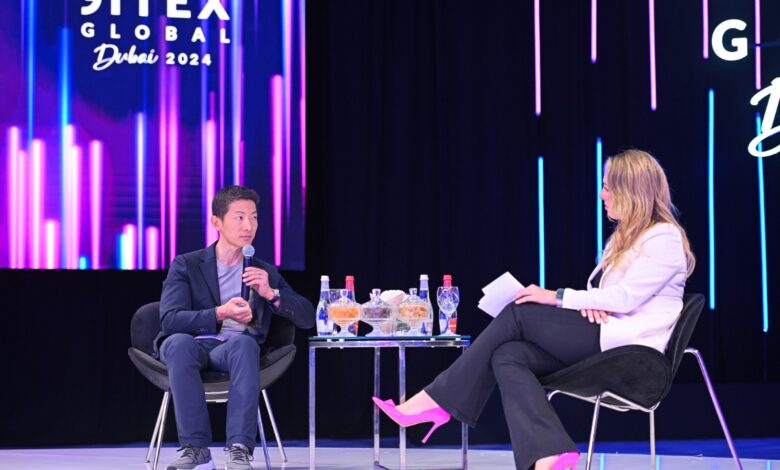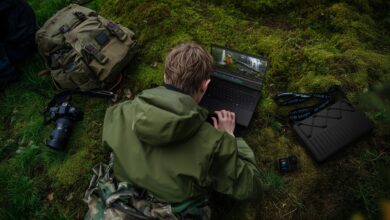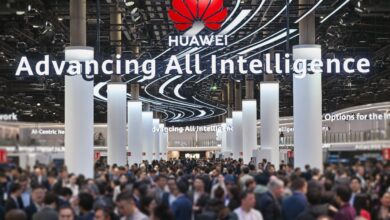OpenAI, G42, Microsoft Drive AI-Native Society Talks at GITEX GLOBAL 2025

GITEX GLOBAL 2025, the world’s largest tech and AI event, takes place from 13-17 October at Dubai World Trade Centre, at a pivotal moment when countries worldwide shift from fragmented AI adoption towards nation-scale intelligence strategies – where computing power, data, institutional readiness, and governance combine to drive economic and societal transformation.
With global attention fixed on the emergence of AI nations, Sam Altman, CEO of OpenAI, marks his highly anticipated debut at GITEX GLOBAL, joining Peng Xiao, Group CEO of G42, in a landmark virtual discussion on the theme of moving “From Early Adoption to AI-Native Societies: Envisioning the Next Era of Intelligence.” Bringing together the two most-watched global vanguards influencing the trajectory of AI, the session is set to deliver groundbreaking insights on going beyond experimentation into full AI integration, laying the foundation of AI-native societies.
The GITEX & G42 AI-Native Societies Programme expands the conversation into strategic alliances and architectures. Senior executives from Core42 and the US-UAE Business Council dive into the UAE-US 5GW AI Campus, the largest AI infrastructure project outside the US. Delving further into intelligence infrastructures and the visionary Global Intelligence Grid are senior leaders from G42, OpenAI, Microsoft, Cisco, Oracle, Khazna Data Centres, and Cerebras.
The focus then shifts to real-world deployments with the leadership team from TAMM – Department of Government Enablement (Government of Abu Dhabi), Presight, Core42, OpenAI, Inception, AIQ, and Mohamed bin Zayed University of Artificial Intelligence, revealing how governments, industries and education systems are operationalising AI at scale.
GITEX GLOBAL 2025’s conference programme converges its largest, most formidable lineup of ministers, policymakers, tech CEOs, founders, and investors from more than 180 countries, spanning multiple summits on AI geopolitics & sovereignty, quantum frontiers, cross-sector use cases, investment priorities, and cyber resilience in the age of AI.
Backed by a show floor of over 6,800 tech enterprises, 2,000 startups and over 40 unicorns, alongside 1,200 investors with US$1.1 trillion in assets under management, the conversations on stage carry far-reaching implications on future strategies, business pivots, collaborations, and economic forces redefining the tech industry.
Ekaterina Zaharieva, European Commissioner for Startups, Research and Innovation, leads the opening discussions on Europe’s push to turn deep-tech prowess into strategic economic power, while the UAE’s Minister of Economy and Tourism, H.E. Abdulla Bin Touq Al Marri, addresses the recalibrating economic strategies around AI.
Continuing the high-level dialogues are H.E. Omar Sultan Al Olama, UAE Minister of State for Artificial Intelligence, Digital Economy and Remote Work Applications, alongside Hon. Evan Solomon, Canada’s Minister of Artificial Intelligence and Digital Innovation, the country’s first AI minister, on the ‘intelligence super-cycle’. The senior leaders explore how nations leverage AI to cushion against economic volatility and assert digital leadership.
With investment bank UBS estimating a staggering $375 billion funding for AI projects1 in 2025, questions are being raised on the geopolitical weight of these investments. In a key session, China’s outspoken global affairs expert, Victor Gao, Chairman of The China Energy Security Institute, spars with Dr. Jörg Goschin, CEO of Germany’s KfW Capital, Europe’s largest state-backed VC deploying €2.5 bn, on the new geoeconomics of investment – how capital is increasingly wielded as an instrument of technological power.
On the national investment front, Naima Al Falasi, SVP AI Strategy & Transformation at Mubadala – Abu Dhabi’s sovereign fund managing a US$302 billion portfolio, shares strategic insights on embedding AI and Machine Learning in key sectors, amplifying national competitiveness.
McKinsey reports that 92% of companies2 are accelerating their AI spending in 2025, intensifying the pressure to deliver tangible business value from AI. Addressing this, Peter Koerte, CTO & CSO of Siemens, shares the how-to on turning the complexity of industrial AI into a competitive business advantage. Zulfi Alam, Corporate VP for Quantum at Microsoft (USA), shifts the conversation to human capital, outlining how enterprises, academia and government must collaborate to develop a quantum-ready workforce.
Representing the hardware bloc, Qualcomm’s President and SVP Government Affairs EMEA, Wassim Chourbaji lends new perspectives on unlocking macro-prosperity through alignment on chip and AI strategies. As IBM scales quantum and AI infrastructure across over 100 countries, Ana Paula Assis, SVP, Chair & GM EMEA & Growth Markets at IBM, offers a rare, multilayered preview of business and governance in the quantum-AI era.
Pioneering founders bring intricate visions of AI’s future economics. Andrew Feldman, CEO of Cerebras, shares the success strategy to scale from startup to IPO, while Greg Jackson, CEO of Octopus Energy, a US$10 billion AI unicorn, challenges the room with the energy-AI paradox – questioning whether the infrastructure race is sustainable at current trajectories.
Ramin Hasani, CEO of Liquid AI, unveils liquid neural networks – a breakthrough inspired by the brain of a microscopic worm – that promises more adaptable, efficient AI systems. Across these exchanges, the themes are clear: speed vs. sustainability, scale vs. flexibility, established vs. emerging paradigms.
World Economic Forum’s Global Cybersecurity Outlook 2025 reveals that Generative AI is being increasingly deployed by hackers for advanced phishing and developing malicious code, with the average number of weekly attacks growing 58% in the last two years.
H.E. Dr. Mohamed Al-Kuwaiti, Head of Cybersecurity in the UAE Government, outlines AI’s role in securing public services infrastructure, and the country’s approach to secure a $500 billion digital economy with 99% connectivity. The European Union’s e-governance pioneer and Estonia’s digital national strategy custodian, H.E. Liisa-Ly Pakosta, Minister of Justice and Digital Affairs, examines state-level responses to AI-enabled threats.
Expanding the Latin America presence in the global cybersecurity debate, André Molina, Secretary of Cybersecurity and Information Security at the Institutional Security Office of the Presidency of the Republic of Brazil (GSI), underlines AI’s capabilities in strengthening public services, and reinforcing cyber defenses from infrastructure to digital identity.




